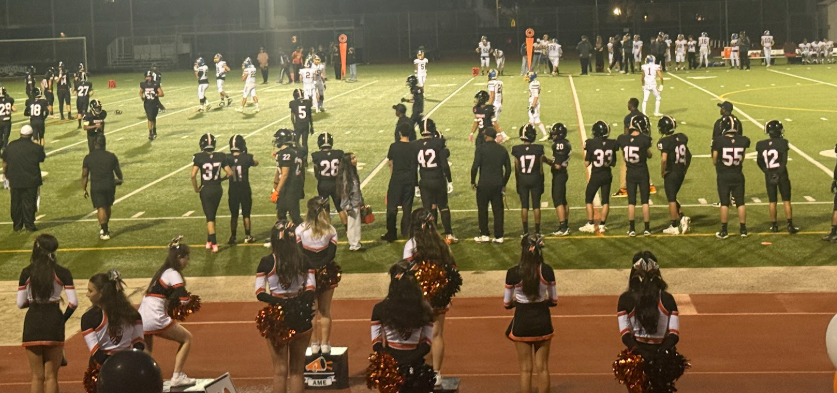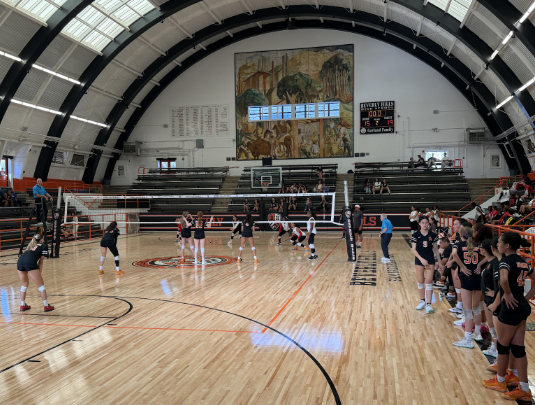Evan Minniti staff writer
Guy Ginsberg co-editor-in-chief
When the 2016 Presidential election process began, it seemed as though one thing was just about set in stone: Hillary Clinton would be the Democratic nominee. After all, who could possibly overtake the front-running former Senator, First Lady and Secretary of State? However, this preemptive notion has proven itself all but true, as Brooklyn’s very own democratic socialist Bernie Sanders has found himself head-to-head battling it out with the Clinton machine.

Riding a wave of support from the young electorate, Sanders has already earned a victory in the New Hampshire caucus, following a close defeat in Iowa, Nevada and South Carolina. As his momentum (and following) grows, Sanders finds himself entering the eyeline of the mainstream population, but unlike Clinton, he was relatively unknown before the election process began. So, in the spirit of Democracy, let’s consider the question: who is Bernie Sanders?
Bernie Sanders was raised in Brooklyn, New York, by Jewish immigrants from Poland. In the 1960s, Sanders joined the youth wing of the Socialist Party of America and was an activist for various civil rights organizations. He was one of the thousands of people who attended Dr. Martin Luther King Jr.’s “I Have a Dream” speech and the March on Washington for Jobs and Freedom. He was arrested for his civil rights and anti-war activism.
Sanders ran unsuccessfully four times for senator in Vermont as part of the Liberty Union Party, a socialist party that grew out of the anti-war New Left Vermont. In 1981 he was elected mayor of Burlington as an independent, though he was quite vocal about his socialist political beliefs. Sanders continued to run for Senate in the 1980s as an independent whilst remaining Burlington’s mayor. He finally won in 1990, beating both the Democratic and Republican candidates. He has remained a senator in Vermont ever since.
Sanders has consistently proved himself to be a progressive senator, strongly influenced by the social democratic welfare states that arose in Europe after World War II. Though Sanders has been consistently popular with leftwing intellectual elements in America, he wasn’t as well known with the American public until recently.
Sanders’ platform for this election is focusing on income inequality, making college tuition free, and repealing the Affordable Care Act (better known as Obama-care) and replacing it with a more radical European-style free healthcare system. However, perhaps his biggest boost comes from his stance on “big money” in politics, or the corruption in Washington that stems from large corporations essentially “buying” influence. In this same vein, Sanders has yet to receive any campaign contributions from large corporations, only accepting donations from “regular” American people, with an average contribution of “$27 a piece!” as the Vermont senator often quips.
Some of Sander’s critics have pointed to his defeat at the Nevada Caucus as proof that his popularity is fading. However, it would be important to point out that the Caucuses are not exactly reflective of the rank-and-file of the party. The Caucuses counted the votes of only 12,223 delegates, 30 percent of which are infamous “superdelegates”, DNC selected pro-Establishment voters, so this can hardly spell out popular support for Sanders. In fact, Sanders has overtaken Clinton in some polls.
So can Sanders rise to the occasion of defeating the political institution that is Hillary Clinton in the Democratic primaries? Or will the Clinton machine subdue the Vermont senator? As it is still quite early in the presidential race, it’s hard to be certain, though it surely will be an incredibly entertaining and interesting process to watch.
‘Feel The Bern’: getting to know Bernie Sanders
February 29, 2016
0
Tags:
Donate to Highlights
$125
$1000
Contributed
Our Goal
Your donation will support the student journalists of Beverly Hills High School. Your contribution will allow us to purchase equipment and cover our annual website hosting costs.
More to Discover






























